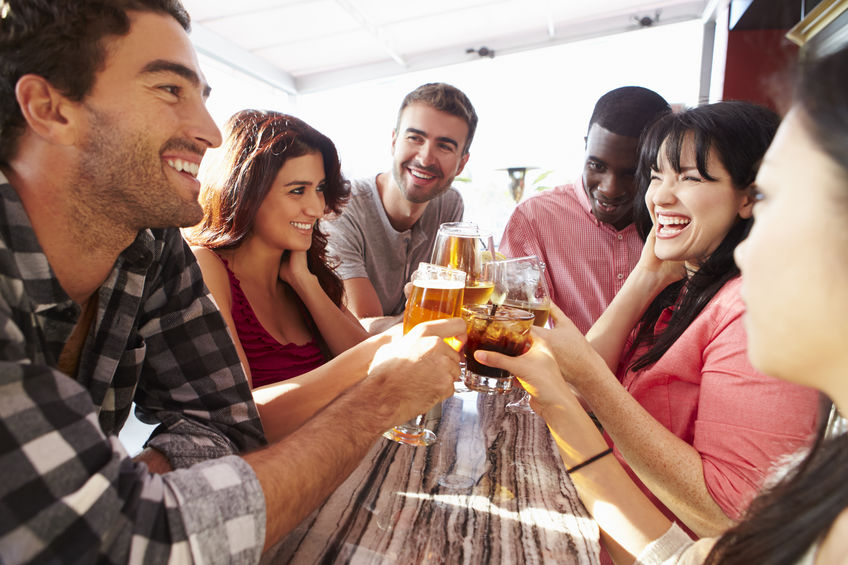Node Smith, ND
Research Finds Some Truth in the Belief That Different Types of Booze Brings out Different Emotions
It is not uncommon to hear an individual claim that a certain type of liquor creates a different experience than another; whiskey or tequila for instance. A research team from the United Kingdom has investigated these claims and found some general truth to this idea. The study1, published last week, substantiates a commonly held belief that different types of alcoholic beverages elicit different emotional responses when consumed. A glass of wine may make one feel more relaxed, while other drinks add confidence and sex appeal. The researchers state that this is the first study to look at the emotional responses of specific types of alcohol.
First Study of its Kind
The data of the study comes from the Global Drug Survey, an international survey of roughly 30,000 participants offered in 11 different languages. The survey was taken online between November 2015 and January 2016. All participants were between the ages of 18 and 34 years old. The survey required a recollection and recording of spirits, beer, red and white wine consumed over the last year. 21 different countries were represented. The participants were asked how they felt after their drinks – positive and negative emotions were given in the survey such as “relaxed, sexy, tired, confident, ill, restless, tearful, aggressive, and energized.”
The Results
The results found that hard liquor such as gin, vodka, and whiskey are associated with stronger feelings as well as more aggressive and negative emotions. Hard liquor was seen to associate with aggression in 29.8 percent of individuals, restlessness in 28 percent of individuals and tearfulness in 22 percent. Red wine, on the other hand only caused aggressive emotions in 7.1 percent. Spirits were also seen to cause feelings of being energized (58%), confident (59%) and sexier (42%). Beer and red wine had a connection with feelings of relaxation, 50 and 53% respectively. And red wine was most likely to cause individuals to feel tired, a response seen in 60 percent of individuals consuming the drink.
Alcohol Content and Ingredients Could be the Culprit
The differences between the emotional responses of various alcoholic beverages is likely due to the differences in alcohol content, and the ingredients in the drinks. However, the cultural implications which are created through media advertising, which are attached to certain drinks, are also likely to play a role.
Source:
1. Ashton K, Bellis MA, Davies AR, et al. Do emotions related to alcohol consumption differ by alcohol type? An international cross-sectional survey of emotions associated with alcohol
Image Copyright: <a href=’https://www.123rf.com/profile_stockbroker’>stockbroker / 123RF Stock Photo</a>
 Node Smith, ND, is a naturopathic physician in Portland, OR and associate editor for NDNR. He has been instrumental in maintaining a firm connection to the philosophy and heritage of naturopathic medicine among the next generation of docs. He helped found the first multi-generational experiential retreat, which brings elders, alumni, and students together for a weekend camp-out where naturopathic medicine and medical philosophy are experienced in nature. Four years ago he helped found the non-profit, Association for Naturopathic ReVitalization (ANR), for which he serves as the board chairman. ANR has a mission to inspire health practitioners to embody the naturopathic principles through experiential education. Node also has a firm belief that the next era of naturopathic medicine will see a resurgence of in-patient facilities which use fasting, earthing, hydrotherapy and homeopathy to bring people back from chronic diseases of modern living; he is involved in numerous conversations and projects to bring about this vision.
Node Smith, ND, is a naturopathic physician in Portland, OR and associate editor for NDNR. He has been instrumental in maintaining a firm connection to the philosophy and heritage of naturopathic medicine among the next generation of docs. He helped found the first multi-generational experiential retreat, which brings elders, alumni, and students together for a weekend camp-out where naturopathic medicine and medical philosophy are experienced in nature. Four years ago he helped found the non-profit, Association for Naturopathic ReVitalization (ANR), for which he serves as the board chairman. ANR has a mission to inspire health practitioners to embody the naturopathic principles through experiential education. Node also has a firm belief that the next era of naturopathic medicine will see a resurgence of in-patient facilities which use fasting, earthing, hydrotherapy and homeopathy to bring people back from chronic diseases of modern living; he is involved in numerous conversations and projects to bring about this vision.




